Emerging Disruptors in Medical Devices
Delivered – Virtually
October 21, 2025
Welcome to the Emerging Disruptors in Medical Devices Conference. Join investors, dealmakers and representatives from the medical devices industry. Listen to CEOs of some of the most dynamic medical devices companies discuss the latest innovations in medical instruments. Don’t miss this opportunity to learn about groundbreaking developments shaping the future of medical devices. Attend virtually on October 21, 2025.
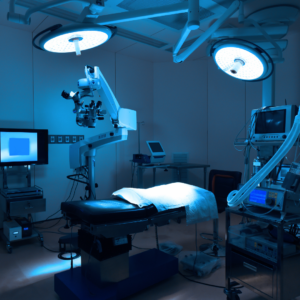
The global medical devices industry is expected to reach $886.8 billion by 2032.
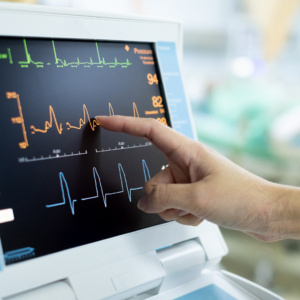
The medical devices market is experiencing significant growth, driven by several key factors:
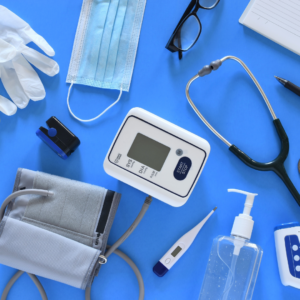 Aging Population: The global population is aging rapidly, with projections indicating nearly 2.1 billion people aged 60 or over by 2050. This demographic shift is increasing demand for medical devices to diagnose, treat, and monitor age-related conditions.
Aging Population: The global population is aging rapidly, with projections indicating nearly 2.1 billion people aged 60 or over by 2050. This demographic shift is increasing demand for medical devices to diagnose, treat, and monitor age-related conditions.
Rising Prevalence of Chronic Diseases: There’s a growing burden of chronic illnesses worldwide, such as cancer, diabetes, and cardiovascular diseases, fueling the need for advanced medical devices.
Technological Advancements: Innovations in AI, machine learning, robotics, and telemedicine are revolutionizing the medical device landscape. These technologies are enhancing diagnostic accuracy, treatment protocols, and patient monitoring capabilities.
Increasing Healthcare Expenditure: Growing per capita healthcare spending and improving reimbursement policies in both developed and emerging countries are contributing to market growth.
Demand for Minimally Invasive Procedures: There’s a rising preference for devices that allow smaller incisions and faster recovery times, leading to better patient outcomes and shorter hospital stays.
Emerging Markets: Rapid population growth and rising disposable incomes in developing countries are creating new opportunities for medical device manufacturers.
Focus on Personalized Medicine: Advancements in technology are enabling the development of devices that can provide personalized diagnostics and care tailored to individual patient needs.
Remote Patient Monitoring: The increasing adoption of telemedicine and remote monitoring devices is facilitating better disease management and early intervention.
Here are some of the most innovative and emerging medical devices in 2025: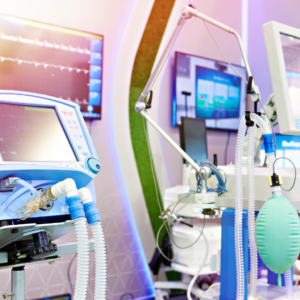
UroDapter by UroSystem: A urological syringe adapter designed to replace traditional catheters, offering a nearly painless alternative for bladder treatment and reducing patient discomfort during urological care.
Brain Anaesthesia Response Monitor: Developed by Cortical Dynamics, this device provides real-time monitoring of brain activity during surgery, enabling anesthesiologists to optimize sedation and pain management.
Wearable Medical Devices: Microfluidic Patches: Adhesive patches that analyze biomarkers in real-time, enhancing diagnostics and medication management. Wearable Biosensors: Devices that track biomarkers like cortisol levels for stress management and personalized care. Smart Clothing: Everyday items like socks or shirts integrated with sensors to monitor heart health or detect diabetic foot ulcers. Sensor-Embedded Smart Fabrics: Non-intrusive fabrics for continuous vital sign monitoring.
Advanced Robotics for Surgery: Robotics-assisted systems like Stryker’s Mako robotic arm, which enhances precision in joint replacements and minimally invasive surgeries.
BiVacor Artificial Heart: A fully artificial heart using magnetic levitation technology, designed to completely replace cardiac function with a lifespan of up to a decade.
Hemotune Magnetic Blood Purification: A system using magnetic beads to remove pathogens, toxins, and antibodies from the bloodstream, promising breakthroughs in treating septic shock and autoimmune diseases.
Enable Injections’ enFuse: A wearable disc for drug delivery that attaches to the skin and administers medication discreetly via a small needle beneath the surface.
AI-Powered Medical Devices: Devices integrating artificial intelligence for predictive analytics, real-time diagnostics, and personalized treatment planning, such as AI-driven imaging tools for orthopedics.
Internet of Medical Things (IoMT): Connected devices enabling remote patient monitoring and seamless data sharing between patients and healthcare providers.
Continuous Glucose Monitors (CGM): Non-invasive glucose sensors providing real-time tracking for diabetes management, evolving toward closed-loop artificial pancreas systems.
Total medical device venture investment reached $7.5 billion across 421 deals in 2024, a 15% increase from $6.5 billion in 2023. First-financing investment grew significantly, reaching $971 million across 106 deals in 2024, a 34% increase from $726 million in 2023. Late-stage rounds (Series B or later) grew at a slower rate, with 315 deals raising $6.5 billion in 2024 compared to 325 deals raising $5.8 billion in 2023.
Below are some of the medical device companies that received significant venture funding in early 2025:
| Company | Home Country | Description of Funding |
| Aerin Medical | United States | Aerin Medical raised $32.5 million from investors including KCK Medtech and Questa Capital. |
| Saluda Medical | United States | Saluda Medical secured $100 million in funding led by Redmile Group, with participation from Fidelity Management. |
| Pleno | United States | Pleno raised $25 million in Series B funding to support the 2025 launch of its Raptor benchtop multiomics instrument. |
| NanoSyrinx | United Kingdom | NanoSyrinx develops nanosyringe technology for drug delivery and raised $13 million in a Series A round. |
| Convergence Medical Robotics | Australia | Convergence is developing robots for arthroscopic surgery and closed a $5 million Series A round in February 2025. |
Below are highlights of recent acquisitions in the medica devices industry:
| Acquirer | Target | Description of Transactions | Transcation Year |
| Johnson & Johnson | Shockwave Medical | Johnson & Johnson acquired Shockwave Medical for $13.1 billion. |
May 2024
|
| Boston Scientific | Axonics | Boston Scientific completed its acquisition of Axonics for $3.7 billion. | November 2024 |
| Becton Dickinson | Edwards Lifesciences | Becton Dickinson acquired Edwards Lifesciences’ critical care group for $4.2 billion. | Q2 2024 |
| Carlyle Group | Vantive Kidney Care | The Carlyle Group acquired Baxter International’s Vantive Kidney Care business for $3.8 billion. | Q3 2024 |
| Cardinal Health | GI Alliance | $2.8 billion | Q42024 |
| Cardinal Health | Advanced Diabetes | $1.1 billion | 2024 |
| Vertex Pharmaceuticals | Alpine Immune Sciences | Vertex Pharmaceuticals purchased Alpine Immune Sciences for $4.9 billion. | 2024 |
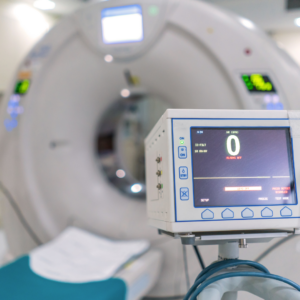
Each management team will discuss their company’s existing and forthcoming product offerings. They will apprise listeners of their addressable markets and expectations for customer segments served. They will inform us of their research and development efforts, proprietary technologies and patent portfolios. They will tell us about their business models including the extent of their collaborations, licensing strategies, distribution channels, expansion efforts, manufacturing strategies, milestones and exit strategies.
Please check back for the agenda of the presenting companies. If you would like to nominate a company to present, please contact Tabitha Owuor at tabitha@davosinthedesert.co
Registration is free for members of Davos in the Desert. The registration price for non-members is just $10. Registration is for one attendee. No refunds.


